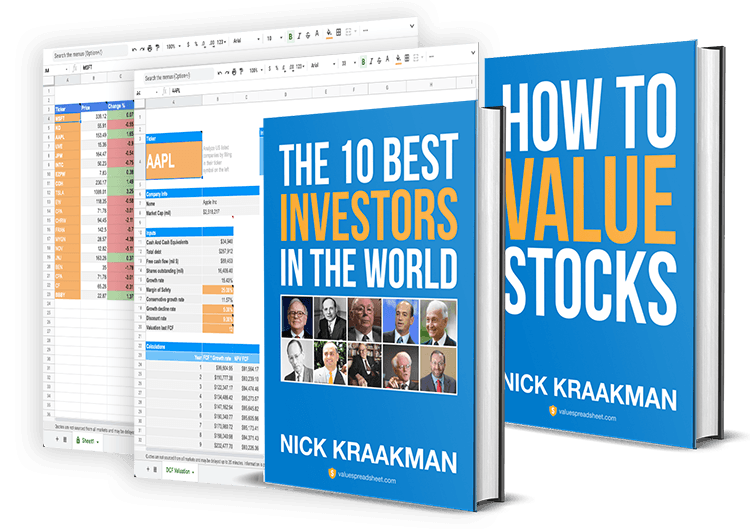Investopedia
Glossaries
| Term | Definition |
|---|---|
| Warren Buffett | The most successful investor of all time. Buffett was a student of Benjamin Graham, and has earned a place in the top 3 richest people on earth by applying sound value investing principles.
Hits - 1128
|
| Value investing | An investment strategy aimed at buying financially healthy companies at a discount to intrinsic value.
Hits - 1253
|
| time value | The part of the option premium which is related to the amount of time left until expiration.
Hits - 664
|
| Sustainable growth rate | A measure of how much a firm can grow without borrowing more money. Sustainable growth rate = Return on equity x (1 - Dividend payout ratio)
Hits - 785
|
| Sustainable competitive advantage | Sustainable competitive advantages are advantages that are not easily copied and, thus, can be maintained over a long period of time.
Hits - 941
|
| strike price | Strike price, also known as "exercise price", is the price at which a stock may be bought (call option) or sold (put option) by the holder of the option.
Hits - 787
|
| standard deviation | A measure of volatility which tells us how far the historical returns have been deviating from the mean return over time.
Hits - 673
|
| Shares outstanding | The number of tradeable stocks held by investors. Essentially, this number indicates into how many pieces the business is divided. This number is used to calculate earnings per share and market cap.
Hits - 865
|
| Shareholders equity | A balance sheet item which indicates the sum of the money originally invested in the firm and the retained earnings it has accumulated over time. It is equal to total assets minus total liabilities.
Hits - 719
|
| SEC | Short for Securities and Exchange Commission, which aims to "maintain fair, orderly, and efficient markets". All U.S. listed companies have to file their financial statements with the SEC.
Hits - 524
|
| Return on equity | The amount of net income returned as a percentage of shareholders equity. It is a measure of how profitable a company is able to deploy its equity. Return on equity = Net income / Shareholders' equity
Hits - 928
|
| Retained earnings | The amount of earnings left after dividends have been paid to shareholders. This money can then be reinvested into the company. Retained earnings = Net income - Dividends
Hits - 787
|
| put option | A contract which gives the holder the right (but not the obligation) to sell a stock at a specified price (strike price) within a specified time period (before exercise date). A put option increases in value if the underlying stock decreases in value.
Hits - 704
|
| probability of profit | Based on a statistical normal distribution, we can say that if you sell an option 1 standard deviation out of the money, there is an 84% probability that the option will expire worthless, in which case you profit since you get to keep the premium.
Hits - 486
|
| P/E | The price-earnings ratio (P/E ratio) is a valuation metric of the company's earnings relative to its share price. A high P/E ratio means that investors are willing to pay more money per dollar of earnings. However, keep in mind that P/E ratio's differ greatly from industry to industry. P/E ratio = Share price / Earnings per share
Hits - 957
|

